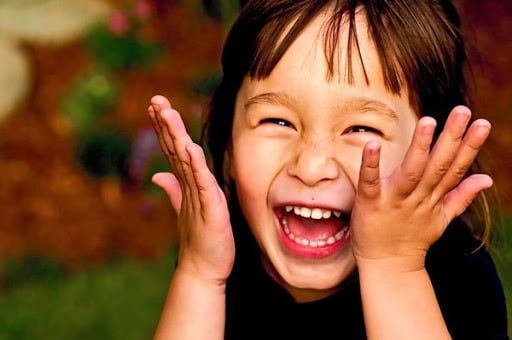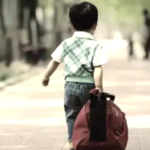Do you believe that through a child’s speech and behavior, we can assess the happiness of that family? Children are often practical and honest, their actions and words often reflect the mood of the family.
By observing deeply how children behave, we can get a panoramic view of the level of happiness in their family. In general, we can find signs of family happiness in various aspects of the child’s development.
1. Children’s emotions
“Every smile of a child is a wonderful picture of family happiness.” By focusing on the innocent face of the child, we can understand more about the essence of family happiness. A smile on a child’s lips is often an undeniable sign of harmony and warmth in the family environment. On the other hand, a child in a chaotic family often reflects happiness by laughing as a consolation, joy amidst difficulties.
The atmosphere of harmony in the family helps children to express their emotions freely, allowing them to be happy or sad without pretense. A typical example is a family where parents love each other and also love their children. From a young age, children have experienced a sense of security, understanding the world through optimistic, confident eyes. In contrast, when parents constantly conflict and pay little attention to the emotions of their children, especially when children want to express emotions, they may become more reserved.

2. Is the child willing to express themselves?
Children are often talkative, especially when they are young. They feel comfortable talking about what they think with people they trust. However, with maturity, some children may become less talkative or say inaccurate things.
The communication style of a child often reflects the family atmosphere. Children are willing to share interesting stories about school and friends with their parents, usually coming from a reliable and supportive family. On the contrary, children who are afraid to share the difficulties of their family may reflect communication barriers within the family. By looking at how children express themselves, we can identify the depth and strength of family relationships.
3. Self-esteem and self-confidence
A happy family is often a place where self-esteem and self-confidence are fostered for children. Confidence comes not only from within but also from gestures and even appearance.
Some parents don’t pay too much attention to their children’s dress style. However, they need to understand that a beautiful appearance can also create self-confidence for children, helping them set high expectations for themselves and develop strong self-confidence.

The ability of a child to have a positive perception of themselves and to cope with challenges can be an expression of the level of support the family is providing. Encouragement and recognition from the family often create confidence in the child’s abilities. In contrast, children who experience criticism or neglect may develop a sense of insecurity about their self-worth.
4. Cooperation and sharing
Family happiness often comes with cooperation and sharing among family members. Observing whether children have the ability to cooperate, share joy and difficulties not only provides important information about family relationships but also demonstrates that the family is growing together.
When at home, the initiative of children in helping siblings solve problems and being ready to share emotions and experiences can reflect a culture of sharing happiness within the family.

The happiness of the family is often expressed through these shared experiences, when children find joy in this connection.
By evaluating the behavior of children in detail, we can understand more about the true condition of the family. However, it should be noted that these observations are only part of the picture of happiness, and the happiness of a family needs to be fully assessed from various other aspects.
Happiness as a Man’>12 Psychological Strategies for Achieving Family Happiness as a Man
It is no secret that keeping a family happy is no easy task. Fortunately, men can utilise a number of psychological tips to help maintain a sense of harmony and joy in their household. In today’s society, the role of men in ensuring a loving and nurturing atmosphere is invaluable. Here are 12 psychological tips for men to help bring harmony and joy into their households.



































